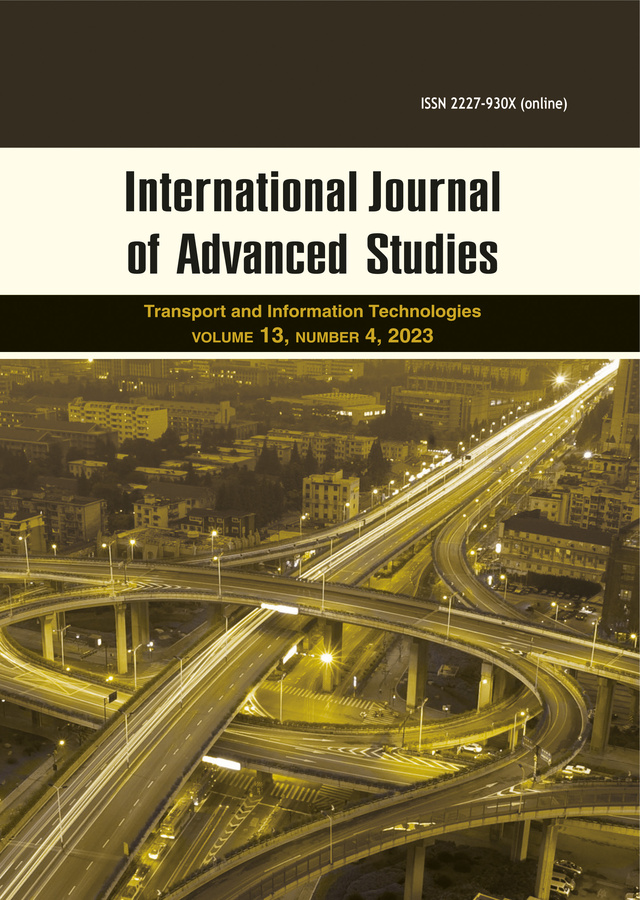Optimization of the Learning Process by Automation of Obtaining the Schedule Based on Telegram
- Autores: Chernov V.A.1, Fatikhov D.R.1, Ramazanov A.D.1, Gareeva G.A.1
-
Afiliações:
- Kazan National Research Technical University named after A.N. Tupolev-KAI
- Edição: Volume 13, Nº 4 (2023)
- Páginas: 22-36
- Seção: Articles
- ##submission.datePublished##: 30.12.2023
- URL: https://journal-vniispk.ru/2328-1391/article/view/348573
- DOI: https://doi.org/10.12731/2227-930X-2023-13-4-22-36
- EDN: https://elibrary.ru/YUOPQN
- ID: 348573
Citar
Texto integral
Resumo
This article describes the process of creating a Telegram bot that would automatically send class schedules for full-time/part-time students on a daily basis. A feature of Telegram bots is - simplicity of use and minimization of resources, which greatly simplifies its creation and interaction with it.
Purpose – create a convenient environment in which the student can easily get the information he or she needs, spending a minimum amount of time.
The method or methodology of the work: the article deals with the way in which by appointing the academic department as the administrator, there will be access to fill the database. Students, when starting the Telegram bot, once will need to specify the form of study and the group. To implement it, the following are used a SQLite database and the Python programming language are used in the implementation.
Result: developed a tool that automates the student will be aware of his schedule, and for the educational part it is easier to create a schedule for each group.
Scope of the results: the data stored in the database is reasonable to use to obtain information in the academic life.
Palavras-chave
Sobre autores
Vadim Chernov
Kazan National Research Technical University named after A.N. Tupolev-KAI
Autor responsável pela correspondência
Email: mercsllflezai@gmail.com
student
Rússia, 1, Akademika Koroleva Str., Naberezhnye Chelny, 423814, Russian Federation
Dinar Fatikhov
Kazan National Research Technical University named after A.N. Tupolev-KAI
Email: d.fatikhov@mail.ru
student
Rússia, 1, Akademika Koroleva Str., Naberezhnye Chelny, 423814, Russian Federation
Azat Ramazanov
Kazan National Research Technical University named after A.N. Tupolev-KAI
Email: azatasd95@gmail.com
student
Rússia, 1, Akademika Koroleva Str., Naberezhnye Chelny, 423814, Russian Federation
Gulnara Gareeva
Kazan National Research Technical University named after A.N. Tupolev-KAI
Email: gagareeva1977@mail.ru
ORCID ID: 0000-0002-8539-4541
Código SPIN: 3279-8465
Scopus Author ID: 36801593200
Researcher ID: М-1728-2015
Head of the Department of Information Systems, Candidate of Pedagogical sciences, Associate professor
Rússia, 1, Akademika Koroleva Str., Naberezhnye Chelny, 423814, Russian Federation
Bibliografia
- James R. Groff. SQL. Polnoe rukovodstvo [SQL. A complete guide] / James R. Groff, Paul N. Weinberg, Andrew J. Oppel. SPb: Williams, 2019.
- Fedorov D.Yu. Programmirovanie na yazyke vysokogo urovnya Python: uchebnoe posobie dlya prikladnogo bakalavriata [Programming in the high-level language Python: textbook for applied bachelor’s degree]. Moscow: Yurait Publishing House, 2019.
- Tugov V.V. Proektirovanie avtomatizirovannykh sistem upravleniya [Designing automated control systems] / V.V. Tugov, A.I. Sergeev, N.S. Sharov. Saint-Petersburg: Lan, 2019, 172 p.
- Modeli i metody issledovaniya informatsionnykh sistem [Models and methods of information systems research] / A.D. Khomonenko, A.G. Basyrov, V.P. Bubnov [et al.]. St. Petersburg: Lan, 2019, 204 p.
- Zlatopol’skiy D.M. Osnovy programmirovaniya na yazyke Python [Fundamentals of programming in the Python language]. M.: DMK Press, 2017, 284 p.
- Prokhorenok N.A. Python 3 i PyQt. Razrabotka prilozheniy [Python 3 and PyQt. Application development]. SPb.: BHV-Peterburg, 2012, 704 p.
- Ponomareva L.A., Chiskidov S.V., Ronzhina I.A., Golosov P.E. Proektirovanie komp’yuternykh obuchayushchikh sistem [Designing computer learning systems]. Tambov: Consulting company Yukom, 2018, 120 p.
- Bengfort B. Prikladnoy analiz tekstovykh dannykh na Python. Mashinnoe obuchenie i sozdanie prilozheniy obrabotki estestvennogo yazyka [Applied textual data analysis in Python. Machine learning and building natural language processing applications]. SPb.: Piter, 2019, 368 p.
- Vinogradova E.Yu. Intellektual’nye informatsionnye tekhnologii – teoriya i metodologiya postroeniya informatsionnykh sistem [Intellectual information technologies - theory and methodology of building information systems]. Yekaterinburg: Ural State University of Economics, 2011, 263 p.
- Nasibulin R.O., Gareeva G.A. Molodezh’ i sistemnaya modernizatsiya strany: Sbornik nauchnykh statey 7-y Mezhdunarodnoy nauchnoy konferentsii studentov i molodykh uchenykh. V 5-ti tomakh, Kursk, 19–20 maya 2022 goda [Youth and system modernization of the country: Collection of scientific articles of the 7th International Scientific Conference of Students and Young Scientists. In 5 volumes, Kursk, May 19-20, 2022] / ed. M.S. Razumov. Tom 3. Kursk: South-West State University, 2022, pp. 425-427.
- Gareeva G.A., Safonov I.M., Dzhibladze Z.G. [et al.] Nauchno-tekhnicheskiy vestnik Povolzh’ya, 2023, no. 1, pp. 52-55.
- Alex Root Jr. Aiogram Documentation, November 2022. https://readthedocs.org/projects/aiogram/downloads/pdf/latest/
- David Love. Tkinter GUI Programming by Example. Packt Publishing, 2018, 340 p.
- Hans-Jürgen Schönig Mastering PostgreSQL 13 - Fourth Edition: Build, administer, and maintain database applications efficiently with PostgreSQL 13. Packt Publishing, 2020, 476 p.
- Baji Shaik, Avinash Vallarapu Beginning PostgreSQL on the Cloud: Simplifying Database as a Service on Cloud Platforms. Apress, 2018, 381 p.
Arquivos suplementares










